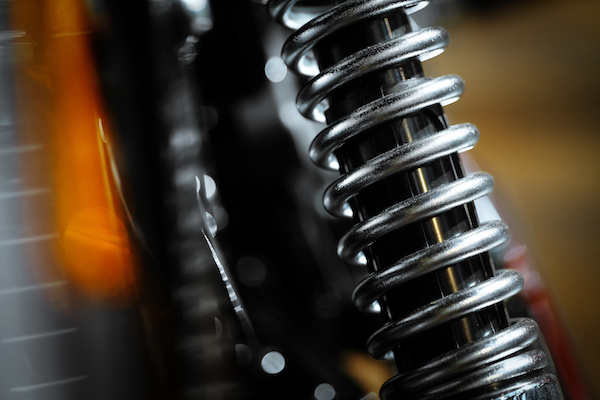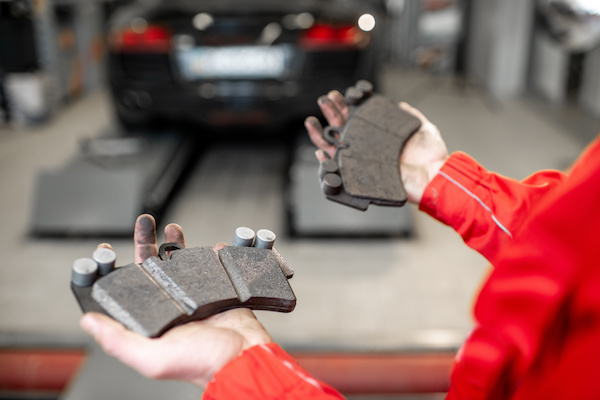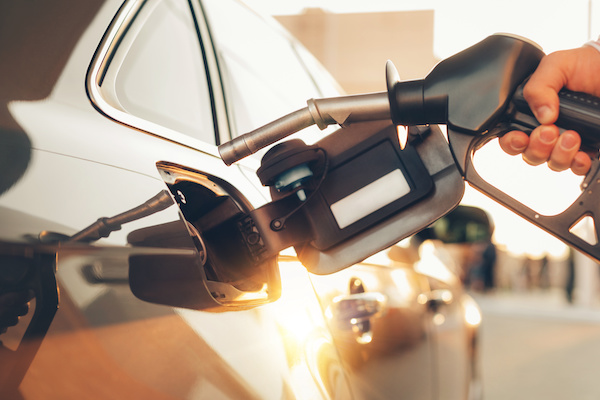Posted on 5/26/2022

A shock absorber's function in your vehicle is to absorb and distribute shock when the vehicle hits bumps and portholes. It is responsible for keeping you and your passengers comfortable throughout the ride. That's not all; every time you apply emergency brakes, the shock absorbers go to work, reducing the amount of shock passengers experience. Because of their central role in vehicle functioning, they do not come cheap but don't worry because you most likely won't have to replace them for four to five years. They also do not have a set expiry date. So how can you tell that your shock absorbers need to be replaced? How to Tell if My Shock Absorbers Need to Get Replaced If your shock absorbers are worn out, you may experience issues bringing your car to a complete halt. You may also find it uncomfortable to go over bumps and other road obstacles as they leave you all shaken up. Sometimes you may find your vehicle diving headfirst each time you step on t ... read more
Posted on 4/28/2022

A car's brakes are composed of several components, each of which needs to be inspected and maintained regularly to ensure the vehicle can stop safely in case of an emergency. These parts include brake lines, brake pads, rotors, and calipers. Common signs you need to replace brake pads and rotors Grinding Sound When Braking Anytime you apply pressure to the brake pedal, a grinding noise will sound, which means your brake pads need to be changed ASAP. Some brake pads come with metal wear indicators that emit a loud noise to alert you that they need replacement. You expose yourself to more damage and higher repair costs if you leave the brake pads to grind. Vibrations During Braking Your vehicle's braking system likely needs professional service if you hear a vibration when you apply the brakes. Your rotors are possibly warped and will have unevenly worn brake pads. Slower stopping If you're unable to apply the brakes with any force, this is another sign that your brake ... read more
Posted on 3/29/2022
.jpeg)
Aftermarket additions are used to personalize and customize vehicles as you like. There are so many aftermarket kits and products that it can be hard to pick what you want. Furthermore, it can be challenging to determine what is most suitable for your vehicle's made and model. Among all the options, the most dramatic change you can make to your car is lifting it with a kit. Using a suspension or body lift kit, drivers can have their ride sit higher off the ground. Besides looks, some can improve your car's performance. Body Lift Kits Versus Suspension Lift Kits There are two general types of lift kits: body lift kits and suspension lift kits. Body lift kits can elevate a car or truck around one to three inches off the ground. This involves lifting the vehicle's body from its frame by adding spacers or blocks. With the elevated body, you have the option to install taller tires too. It is important to note that body lift kits do not increase the vehi ... read more
Posted on 2/28/2022

To answer this question, it depends on the scenario and the kind of mix-up that occurred. Even if the situation isn't considered dangerous if done once, you should never put the wrong type of gas in your car intentionally or more than once. Below are four possible fuel mix-up scenarios: Putting 87 Octane Instead of 93 Octane Gasoline Octane numbers can be confusing for some drivers, but it is just the rating of the fuel's ability to withstand compression. Some people opt for 87 octane gas because it is cheaper. Using different octane will not cause intense damage, but things can be complex if you use a lower-than-recommended octane. Depending on the make/model and your engine design, a lower octane might not strike immediate damage, but continuing to do so could cause engine knocking. Putting 93 Octane or Higher than Recommended Octane Gasoline Of the four different scenarios, this is the least harmful. A higher octane level will not hurt your engine, but it also won ... read more